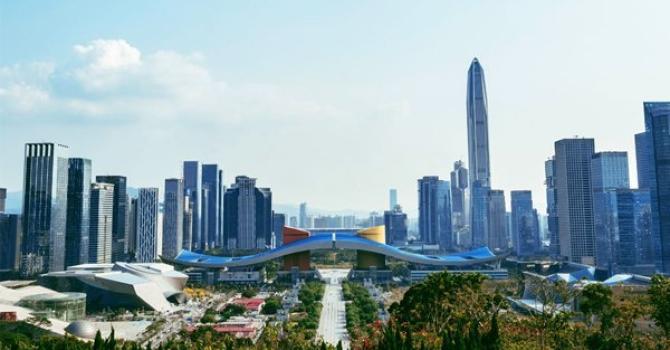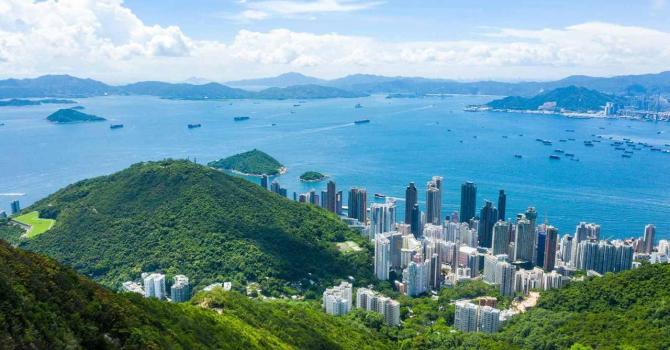Can government revamp bring Hong Kong closer to achieving its climate goals?
- Making our city greener and more sustainable is a complex task that requires the efforts of multiple bureaus
- The Lee administration’s ability to deliver on this goal will be a test of whether the expensive restructuring leads to better cooperation between agencies
The government restructuring plan is being implemented at top speed and will be in place by July 1 when John Lee Ka-chiu takes office. There are two aspects of the revamp most worthy of assessment. The first is whether it will enable stronger policymaking; the second, whether policies will be implemented more effectively.
Creating good policy involves having people with the right skills. They must understand the nature of a given problem, as well as the actual context within which it needs to be solved. They also need the political skills to deal with resistance to change, especially from vested interests.
This is easy to say but very difficult to accomplish, for any government in the world. Strong and clear leadership is vital. Political appointees must know what it takes to shape and carry out the chief executive’s policy aims, then work with the civil service to get the job done.
Aside from assembling a high-quality political team and promoting the right civil servants to support the crafting of policy details, the government also needs to ensure it has a strong internal structure for policy research and deliberation, and for identifying and managing crises.
There may be many internal meetings, but the test is whether coherent and defensible policies are produced. This depends on the knowledge, experience and attitudes of the political appointees and civil servants, and on how they work together.
At their best, they can produce workable policies quickly and take them through the executive and legislative systems successfully. This is possible. However, any weakness along the chain in knowledge, strategic thinking or problem solving could result in kinks and delays. This has been the case in the past.
Many contemporary issues are complex and multidisciplinary. Governments are expected to multitask, which is also easier said than done because it involves thinking broadly while absorbing details, juggling ideas, and switching gears back-and-forth on a range of topics and understanding how they relate.
Other essential skills include designing and convening policy deliberation and engaging stakeholders internally and externally. A highly hierarchical bureaucracy will prevent good ideas reaching those at the top.
An example of a complex issue is how to achieve carbon neutrality by 2050 and make Hong Kong a model of ecological civilisation, focusing only on development that enhances the environment and human well-being.
How the Lee administration goes about delivering on this goal will reveal the level of its strategic capabilities, policymaking abilities, communication skills and implementation capacity.
Climate change is a global priority. Hong Kong’s efforts could help the city shine internationally. If the Lee administration does not make its stance on climate change explicit, it will lose a rare opportunity for Hong Kong to win applause when negative geopolitical forces are hurting the city and its leadership.
Climate change is also a national priority. Beijing is updating its belt and road policies to take climate action and sustainability into account. Under Hong Kong’s restructuring plan, local policies related to the Belt and Road Initiative will be the responsibility of the Commerce and Economic Development Bureau, and hence it must become conversant on all climate issues and green targets.
Neighbouring Guangzhou and Shenzhen are going through industrial transformation alongside decarbonisation. As Hong Kong prioritises re-industrialisation, the revamped Innovation, Technology and Industry Bureau must also be up to speed on decarbonisation goals and strategies, and on China’s circular production policy that requires minimising resource use and waste.
It is right that the government restructuring proposal highlights the need for large projects, like the Northern Metropolis, to be well-coordinated, as they affect many parts of government and the private sector.
There are many highly experienced engineers within the Development Bureau and its departments who have supervised a range of successful public projects, such as in landslide and flood prevention. Their skills will be vital for climate adaptation in the Northern Metropolis and elsewhere in Hong Kong.
It should not be an issue for the bureau to continue to innovate in climate adaptation. The trick is to coordinate design and planning with Shenzhen, given that we are part of the same geographical region facing similar extreme weather risks.
Meanwhile, the Health Bureau should include the health risks associated with climate change in its portfolio – this has not been clearly done – as rising temperatures and infectious disease are major threats.
The Environment and Ecology Bureau will have a much bigger portfolio going forward. This reflects the rising importance of the environment and its management, particularly with respect to waste.
One area in which the bureau needs to beef up knowledge and capacity to meet decarbonisation goals is energy generation. It should push power utilities to release energy consumption data, which will help Hong Kong formulate energy saving policies and stimulate the private sector to develop greener practices. This would also dovetail with the Innovation, Technology and Industry Bureau’s goal to drive innovation.
Finally, the government should update policies relating to building standards, helping Hong Kong save energy, reduce noise, live “smart” and improve health and well-being.
The government’s restructuring proposal is like the proverbial “proof of the pudding”: we won’t know what it’s like until after it’s done, and whether it works better to deliver the results Lee wants. But the costs involved are easily affordable for our wealthy city if they bring about better governance.
This article is written by Christine Loh, chief development strategist, Institute for the Environment, HKUST The article has appeared on SCMP - https://www.scmp.com/comment/opinion/hong-kong/article/3179267/can-government-revamp-bring-hong-kong-closer-achieving



